Supporting your employees through the menopause transition

Menopause is a significant life transition that can significantly impact people's health and wellbeing. For many people who experience menopause, the symptoms can also affect their work performance and overall quality of life.
The impact of menopause symptoms in the workplace has been attracting increasing attention in the media and in research.
Given women aged 45 years and over are a growing segment of Australia’s workforce, it is important for organisations to better understand the menopause transition and how they can best support these workers’ lives and their capacity to work.
We welcome the recommendations of the Federal Senate Inquiry to better quantify the impact of menopause on Australian women's participation in the workforce.
Understanding the impact of menopause at work

Australian employers (and society) have been slow to understand the realities of the menopause transition for women in the workplace. It was only in 2023 that the word 'perimenopause' was first spoken in federal parliament by Senator Larissa Waters. This year, journalist Imogen Crump went viral for breaking off mid-sentence on live TV to apologise for a hot flush - a first for national television.
A report published in 2023 by Jean Hailes reminded us that each person’s experience of menopause is unique, and the majority of women navigate this transition with little to no additional support or therapeutic interventions.
This report cautioned against ‘catastrophising’ menopause and called for further studies to inform the frameworks used to test the efficacy of workplace interventions.
This was the catalyst for Transitioning Well to partner with Thea O'Connor, a workplace wellbeing advisor specialising in menopause, on a workplace intervention to help both at an individual, and at an organisational level.
Delivered by our national team of registered psychologists, our program prioritises confidentiality and comfort, ensuring a safe space to discuss challenges and develop strategies for managing symptoms, maintaining performance, communicating with managers, and leveraging the strengths often associated with menopause.
In 2022 a UK Study of 4,000 women found 44% of women experiencing menopause reported impacted ability to work, with 10% leaving work due to menopause symptoms.
What we know
Studies in Australia have identified a link between menopause and its impact at work
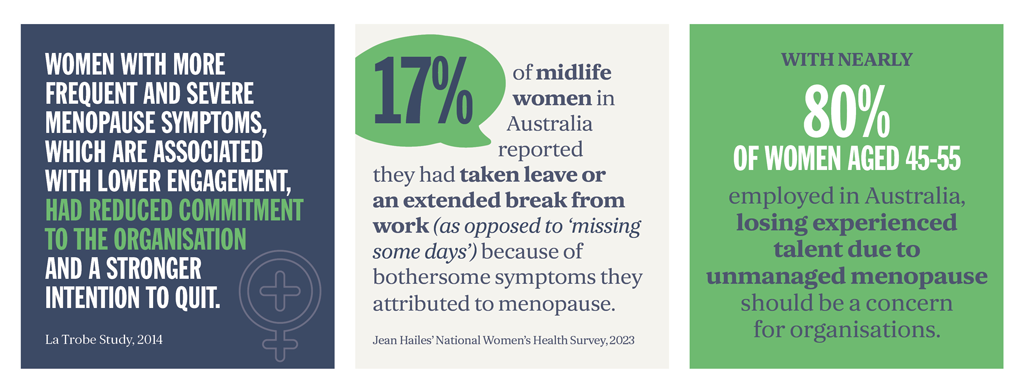
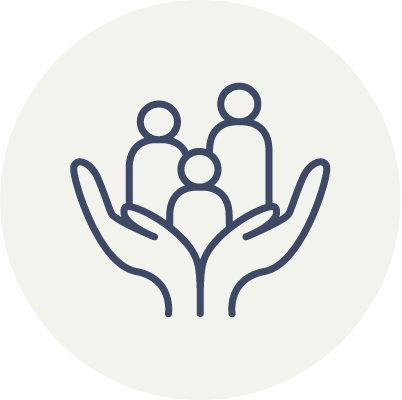

A New Approach To Supporting Menopause in the Workplace
Transitioning Well takes a holistic approach to supporting employees experiencing menopause in the workplace. This includes offering evidence-based programs and interventions tailored to the unique needs of each participant.
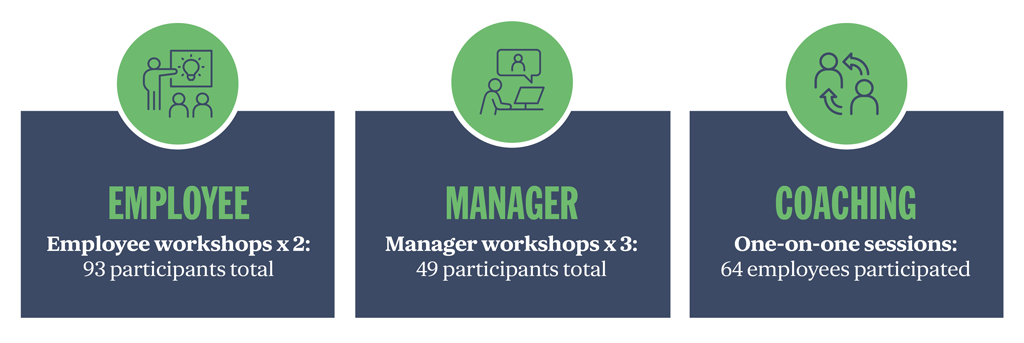
64 People Coached. 49 Managers Trained. 93 Participants.
Transitioning Well was engaged by a Victorian government department to deliver a pilot program on menopause support to its employees and managers. There was high engagement in both the coaching sand workshops, indicating a high demand for a program of this nature.
The coaching program was delivered by a national team of registered psychologists. The program emphasised confidentiality and comfort, creating a safe space for participants to discuss challenges, develop strategies, and leverage the strengths associated with menopause.
The workshops were delivered by our partner, Thea O'Connor and tailored to both a leader and employee audience.
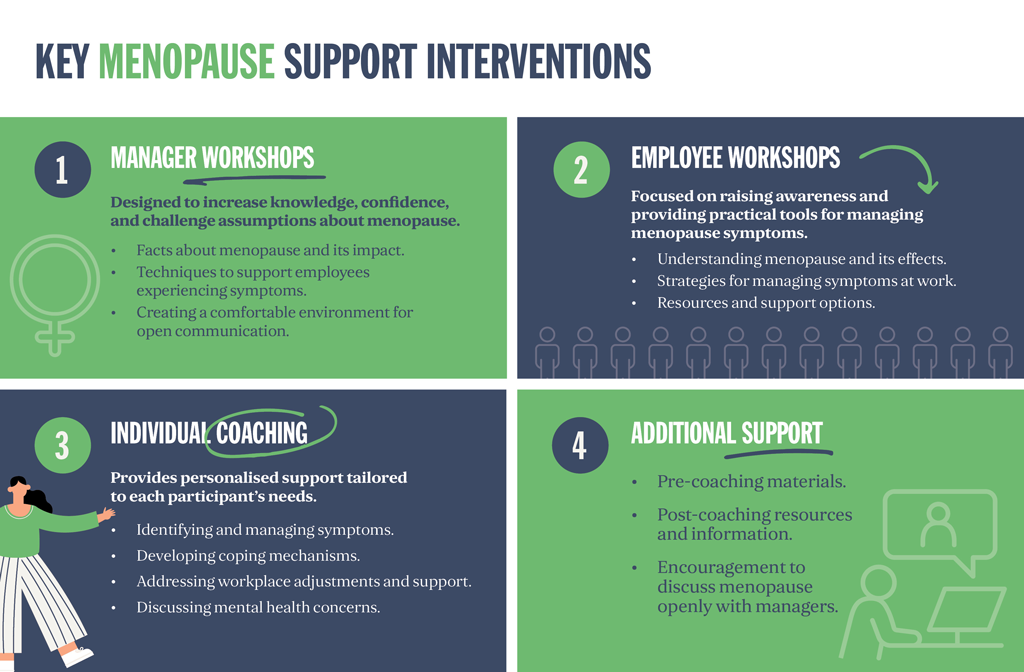
This program should be offered again in my workplace. I would encourage all the women I know in my age range to participate.
4 Phases Of Menopause Support In The Workplace

By taking proactive steps to make our workplaces more menopause-friendly, we can create a healthier and happier environment for women, while also reaping the benefits of increased employee engagement and retention.
Increasing Manager Confidence
Managers were invited to answer a small number of questions at the start of the workshop, with the same questions repeated at the end. Their responses suggests that the workshop was effective in increasing their knowledge and confidence, as well as challenging negative assumption about menopause.
Figure 1. shows that confidence to have comfortable and constructive conversations with employees increased dramatically. Only 19% of participants felt confident at the start of the workshop, which increased to 92% by the end.
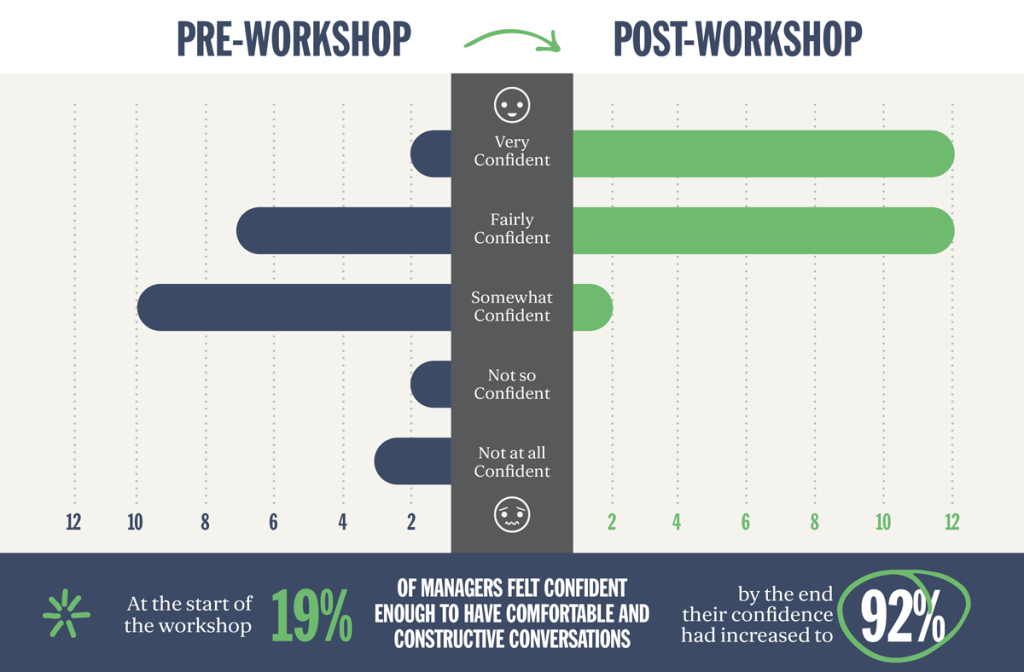 Figure 1. Pre- and Post- Comparisons of Confidence in Conversation
Figure 1. Pre- and Post- Comparisons of Confidence in Conversation
It is fantastic to raise awareness around how going through the menopause transition can impact women and how they work.
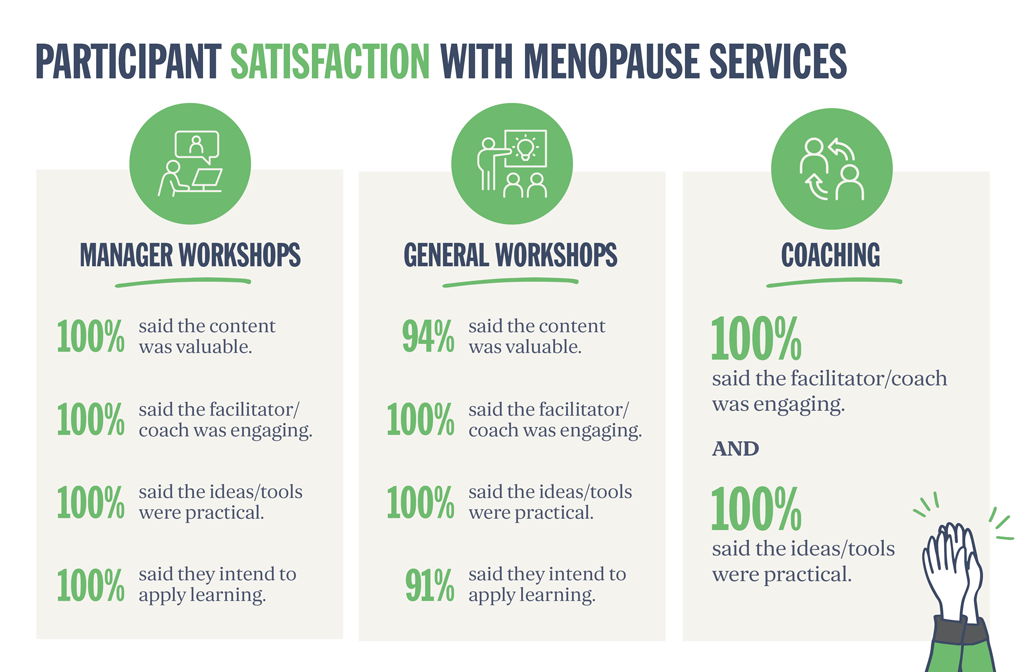
Talking about menopause more openly will lead to conversations about menopause becoming more open.
A Brighter Future for Women At Work

Our program has demonstrated that it is possible to create a workplace where women can thrive during the menopause transition. With a prevention-led approach, the program offered tools and education to facilitate systemic change. To achieve this, the Transitioning Well program concentrated on the following key areas:
✓ Increased Employee Engagement
We know that women who feel valued and supported are more likely to be engaged and motivated. The program's workshops and coaching sessions provided the information and tools needed to manage menopause symptoms and navigate workplace challenges.
✓ Manager Confidence
Increased awareness and upskilled managers to better understand facts about menopause and its impact on women, as well as legal constraints related to workplace accommodations. This enabled managers to feel more confident in having supportive conversations with their team members.
✓ Reasonable Workplace Adjustments
The program emphasised the importance of providing workplace adjustments to accommodate the needs of women experiencing menopause symptoms. This included flexible work arrangements, access to quiet spaces, and support for any mental health and wellbeing challenges identified.
Menopause is a significant life transition for women everywhere. When we equip women with education about what to expect, and managers with the tools to support those who are struggling with symptoms, we can shift the dial on women's career trajectories and financial wellbeing into the future.
Introduce The Menopause Transition Support Into Your Workplace
 Our national team of psychologists in partnership with Thea O'Connor bring evidence-based approaches and tailored tactics to the table, which allows us to support your people at this important the intersection where work meets life.
Our national team of psychologists in partnership with Thea O'Connor bring evidence-based approaches and tailored tactics to the table, which allows us to support your people at this important the intersection where work meets life.
The Menopause Transition Support Program is designed to ease the challenges and help leverage the strengths that come with this life stage.
In addition to workshops, we tailor three hours of individual coaching around the unique needs of the individual as well as the inclusion of manager sessions as required.
Take advantage of the strengths that come with this life-stage.
Menopause brings valuable strengths to the workplace, including enhanced perspective and insights, confidence, and the ability to leverage experience and expertise to bring more authority to the table than ever before.